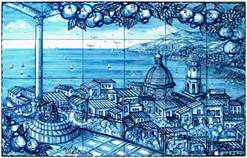Speaker
Mr
Lucas Burigo
(Frankfurt Institute for Advanced Studies, J.-W. Goethe-University, 60438 Frankfurt am Main, Germany)
Description
Presently protons and 12C nuclei are successfully used for treating cancer. Other projectiles, e.g. 4He and 7Li, differ in their biological action from 12C nuclei, but still have favourable beam divergence similar to 12C and thus can be considered as new treatment options. In view of possible applications of nuclei lighter than carbon in cancer therapy, the quality of their radiation fields has to be studied with accounting for nuclear fragmentation in collisions of projectiles with nuclei in tissues. With our Monte Carlo Model for Heavy-ion therapy (MCHIT) [2,3] based on the Geant4 toolkit [1] we study propagation of 4He, 7Li and 12C nuclei with similar ranges (~ 180 mm) in a water phantom and calculate corresponding microdosimetry quantities measured with a compact Tissue Equivalent Proportional Counter (TEPC) detector. The impact of beam fragmentation on microdosimetry spectra is investigated for all projectiles, and contributions from nuclear fragments of certain charge are identified with respect to the TEPC position in the phantom. MCHIT describes well microdosimetry spectra measured with 12C beams [4]. As found, about 55% of the carbon projectiles undergo fragmentation before reaching the Bragg peak depth. However, there is still room for improvements of Geant4 models describing propagation of 7Li nuclei in water, as certain deviations from measured microdosmetry spectra [4] are found.
References
[1] I. Pshenichnov et al., Phys. Med. Biol. 52 (2010) 7295
[2] I. Pshenichnov et al., Nucl. Inst. Meth. Phys. Research B 266 (2008) 1094;
268 (2010) 604
[3] J. Allison et al., IEEE Transact. Nucl. Sci. 53 (2006) 270
[4] G. Martino et al., Phys. Med. Biol. 55 (2010) 3441
Author
Mr
Lucas Burigo
(Frankfurt Institute for Advanced Studies, J.-W. Goethe-University, 60438 Frankfurt am Main, Germany)
Co-authors
Prof.
Igor Mishustin
(Frankfurt Institute for Advanced Studies, J.-W. Goethe-University, 60438 Frankfurt am Main, Germany; Kurchatov Institute, Russian Research Center, 123182 Moscow, Russia)
Dr
Igor Pshenichnov
(Frankfurt Institute for Advanced Studies, J.-W. Goethe-University, 60438 Frankfurt am Main, Germany; Institute for Nuclear Research, Russian Academy of Science, 117312 Moscow, Russia)

